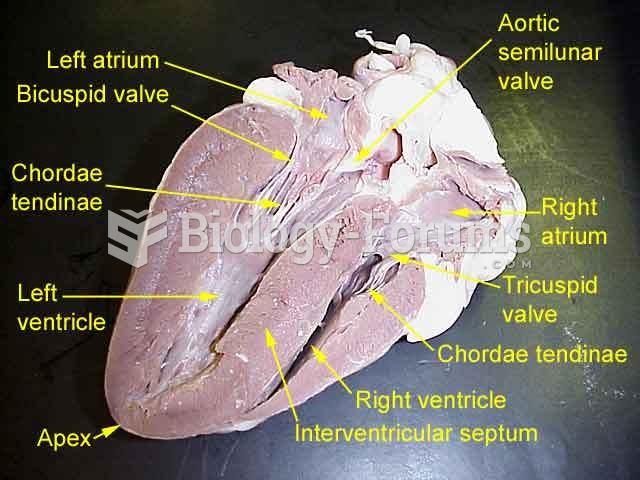Answer to Question 1
Obesity increases the risk of heart disease, partly because excess fat pads crowd the heart muscle and the lungs within the body cavity. These fat pads encumber the heart as it beats, requiring it to work harder to deliver oxygen and nutrients to the rest of the body. Also, the lungs cannot expand fully, thus limiting the oxygen intake of each breath and causing the heart to work even harder. Furthermore, because each extra pound of fat tissue demands to be fed by way of miles of capillaries, the heart must work extra hard in obese people to pump blood through a network of blood vessels that is vastly larger than that of a thin person. Even a healthy heart is strained by excess fat. When a diseased heart finds itself in this bind, a sudden increase in workload may be more than it can handle.
Answer to Question 2
Eating Well on the Run
Here are some smart choices for those with little time:
Sandwich Shop: Fresh sliced veggies in a pita with low-fat dressing, cup of minestrone soup, turkey breast sandwich with mustard, lettuce, tomato, fresh fruit.
Rotisserie Chicken: Chicken breast (remove skin), steamed vegetables, mashed sweet potatoes, tossed salad, fruit salad. Select plain rolls instead of cornbread or biscuits.
Fast Food: Grilled chicken breast sandwich (no sauce), single hamburger without cheese, grilled chicken salad, garden salad, low-fat or nonfat yogurt, fat-free muffin, cereal, low-fat milk.
Salad Bars: Broth-based soups, fresh bread or bread sticks, fresh greens, chopped veggies, beans, low-fat dressing, fresh fruit salad. Avoid marinated beans and oily pasta salads.
Asian Take-Out: Wonton soup, pho (Vietnamese noodle soup), hot and sour soup, steamed vegetable dumplings, steamed vegetable mixtures over rice or noodles.
Pizza Night:
Choose flavorful, low-fat toppings such as peppers, onions, sliced tomatoes, spinach, broccoli, or mushrooms. Ask for your pizza with less cheese.







